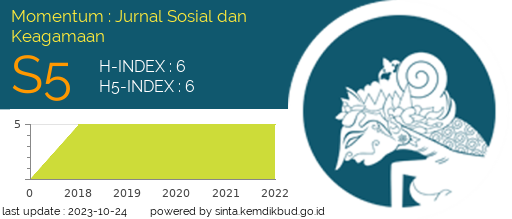Pendidikan Interreligius Berbasis Pancasila Sebagai Acuan Melawan Stigma Menguatnya Radikalisme
Kata Kunci:
Interreligious Education, PancasilaAbstrak
Humans are social creatures, they cannot live alone. In living together, of course, they have differences or diversity, ranging from physical, speaking style, preferences, how to dress, and so forth. Every person is unique, so living in diversity is something that cannot be avoided. But from diversity also often leads to acts of radicalism, from this point the values of Pancasila need to be immediately applied in the world of education to overcome religious-based radicalism by encouraging the implementation of interreligious education because interreligious education using Pancasila as an appropriate reference reduces the nature of excessive fanaticism. In other words, the author expresses a tolerance education and good pluralism is interreligious education. Interreligious education is education that brings each student to encounter diversity in religion, ethnicity, and race, and leads students to become open and tolerant people. Where interreligious education can be included in the curriculum of religious education and citizenship education and school programs. at the same time emphasizing that interreligious education does not need to drag a person into the siltation of aqeedah or religious relativism, as is usually feared. Instead, this is an effective form of shared norms and positive attitudes towards religious plurality so that religious encounters can be an opportunity for mutual enrichment and cooperation, to optimize the personal potential of each religious adherent in the association of humanity
File Tambahan
Diterbitkan
Cara Mengutip
Terbitan
Bagian
Lisensi
Hak Cipta (c) 2020 MOMENTUM : Jurnal Sosial dan Keagamaan

Artikel ini berlisensiCreative Commons Attribution-ShareAlike 4.0 International License.







